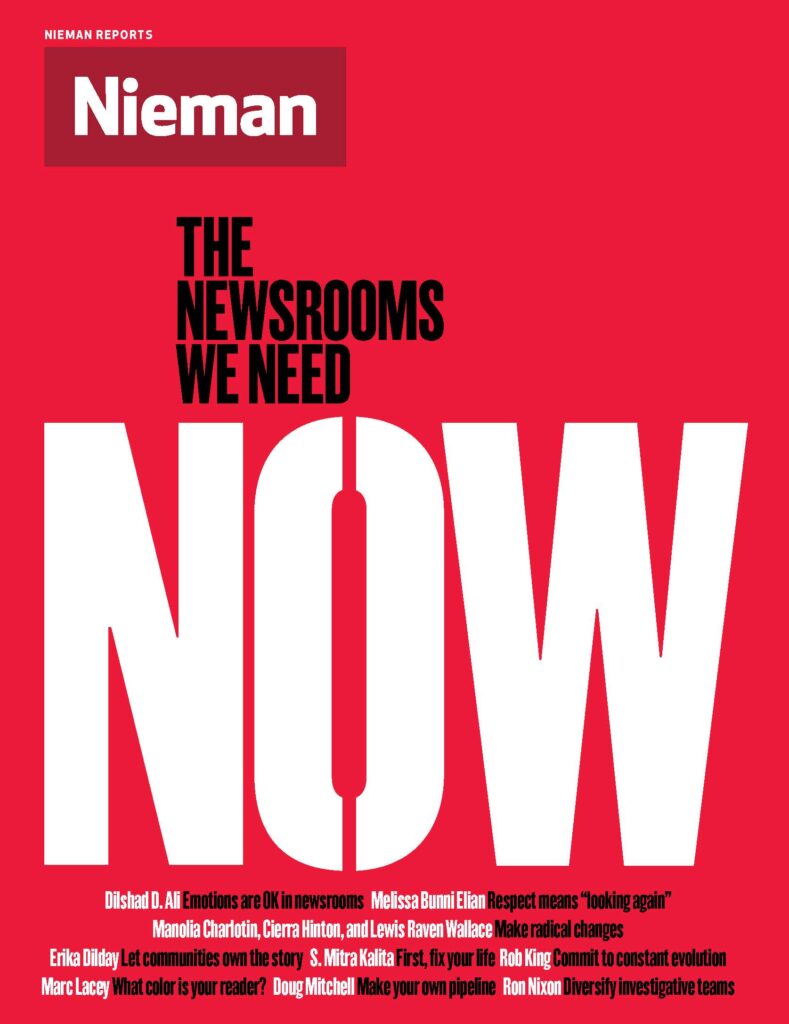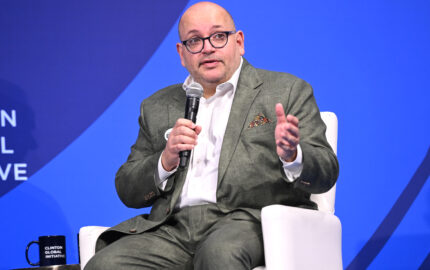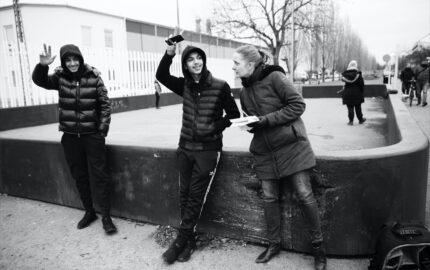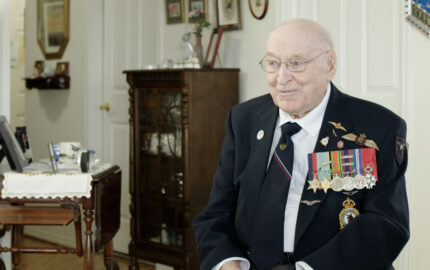
As American society grapples with growing demands for racial justice, American newsrooms are struggling with how to appropriately respond. Beyond making newsrooms more diverse, how should journalism meet the challenges of the moment and change newsroom structures and cultures that uphold oppression?
In a series of essays, thought leaders reflect and offer prescriptions for what the news industry needs to do.
Hannane Ferdjani, NF ’20, launched her program “Beyond the Noise” to report on the pandemic’s impact on Africa
Providing better narratives about Africa — it’s been my journalism quest since I first stumbled my way into the field almost a decade ago.
But as I moved from print to television, from national to international newsrooms, and finally made it back on the continent as a news anchor on a pan-African news channel, that pursuit became increasingly crucial, albeit difficult to attain.
How to achieve reporting that speaks truth to power and unveils injustices that vulnerable Africans are suffering from without perpetuating longstanding stereotypes that mainstream media had always fed me about Africa?
My application for the Nieman fellowship reeked of that dilemma. Or challenge, if you choose a glass-half-full approach. And as I audited my way into classes rethinking paradigms about development, governance, and socioeconomic ecosystems in Africa, the direction I needed to take remained blurry.
That is until the pandemic happened. I had pondered starting my own web-based journalism project for a couple of years, but when the world came to a halt and everything we thought we knew about the future crumbled, there just seemed like there was no more time to think.
If I’m honest, my weekly online program which initially covered the impact of Covid-19 on the African continent — “Beyond the Noise” — was born from a need to regain control of a moment of absolute uncertainty.
Sure, I could have surveyed online trends and trajectories, fixed up a dedicated YouTube channel, written up a business plan, or sought funding before publishing episode 1.
Had I taken those planning steps before clicking “post” that first time in March, I probably would have avoided some rookie mistakes or simply better grasped the forever evolving intricacies of online video creation. I would have prepared myself for a multilayered battle for views, likes, and shares, or what the savvy refer to as “engagement.”
But as confusing, demanding, and time-consuming as these past few months have been, I have never felt more engaged in my quest to become a better storyteller for Africa.
None of the roles I was given in the past allowed me to explore such a wide-ranging spectrum of stories in depth and to give African voices the ability to share their firsthand insights, experiences, and knowledge with an African audience.
From investigating African educational systems to shedding light on innovative projects brought forth by Africans in response to the sanitary crisis to exploring the Black Lives Matter movement’s ramifications on the continent, “Beyond the Noise” has grown and improved and become a trusted source of reporting for a niche audience interested in underreported stories, fact-based information, and innovative content.



